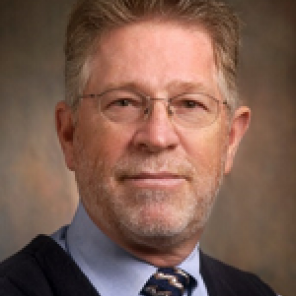
Jeffrey Ebersole is the Associate Dean for Research and a Professor of Biomedical Sciences at the University of Nevada, Las Vegas. Ebersole received his Ph.D. from the University of Pittsburgh, Pa. and did a postdoctoral fellowship in the Department of Immunology at The Forsyth Institute, Cambridge, MA.
Ebersole’s research focus is on the immunobiology of oral infections, with an emphasis on in vitro and in vivo studies of host-pathogen interactions using animal and human models of oral disease(s). His CV contains over 300 publications, reviews and book chapters on the microbiology and immunology of oral diseases in the context of Periodontal disease.
Ebersole served as the 40th AADR President from 2011-12. He received the 1983 IADR Award for Basic Oral Science Research and the 2000 IADR Award for Basic Research in Periodontal Disease.
1. How did you first learn about AADR and what motivated you to join? What do you find to be the most valuable benefit of AADR membership?
I had my first interaction with the AADR by becoming a member, attending the Annual Meeting in 1973 and presenting my first abstract in 1974. As my doctoral training was in mucosal immunity, it was clear that the AADR presented a focus of sciences in this area that would clearly contribute to my scientific development. As a member over the last 45 years, this initial opinion has only been heightened.
2. What is the best way for other members to become more involved in AADR?
Organizations like the AADR and IADR are directly dependent on their success through the commitment of servant volunteer leaders to help guide the organization as it needs to evolve to support its membership. This commitment and support will continue to be needed at the local and national level in higher leadership roles, as well as service to committees and contributions to the scientific basis throughout the breadth of the organization. Thus, a continual supply of “new blood” with exciting ideas underpinning the ongoing commitment of the “old guard” will energize the AADR in coming years. I started this process many years ago as an abstract reviewer, then group program chair, then President and Counselor for the Microbiology/Immunology group and serving on various national committees. The AADR needs a long term commitment through this leadership development process for its success.
3. You served as the 40th President of the AADR, from 2011-12. What motivated you to run for office? How has this leadership experience within AADR shaped your career?
I had served the AADR in a number of roles in local chapters, scientific groups and national committees over many years. Many of my colleagues had previously served as President of both the AADR and IADR. As such, I had great mentoring from these leaders regarding the importance of giving back, as well as the tremendous personal benefit that occurs in serving with great people who are geographically and scientifically diverse on the board of the organization. Thus, I chose to run and was lucky enough to be selected by the members of the AADR to serve as President. This relationship with the AADR provided a cornerstone for my academic and leadership career development. It provided me the opportunity to work with great colleagues, acquire a much greater appreciation for the breadth of dental sciences and interact with and learn from leadership in both dental education and professional dentistry.
4. You were named a 2017 AADR Fellow. What does this mean to you?
My service in various support activities for the local and national needs of the organization was a choice that I felt I could, and needed, to make as payback for the many good things that the AADR had contributed to my academic career. However, the organization reviewing my contributions over these decades and determining the value of these activities through selection as an AADR Fellow was a true honor. As always, recognition by my peers for a commitment to what I really enjoy doing is truly a capstone on my career and relationship with the AADR.
5. What do you want to see in the future for AADR?
It is clear that the future of the AADR will rely on its ability to continually evaluate and renew the deliverables in its mission. Recruiting new members from generations with very different perspectives of the world, including science and successfully retaining those members will always be an important challenge for professional organizations like the AADR. It will need to continue to demonstrate “value added” to the individual members that will require creative leadership that helps the organization remain nimble and flexible within the changing scientific and funding climates. It is also clear that the AADR has had a major role in the recent changes in CODA requirements for research activities in dental schools. This leadership role will need to be maintained to assure that the dental profession/oral health sciences evolve as a scientific discipline based upon quality evidence to improve the oral health of the global population.




